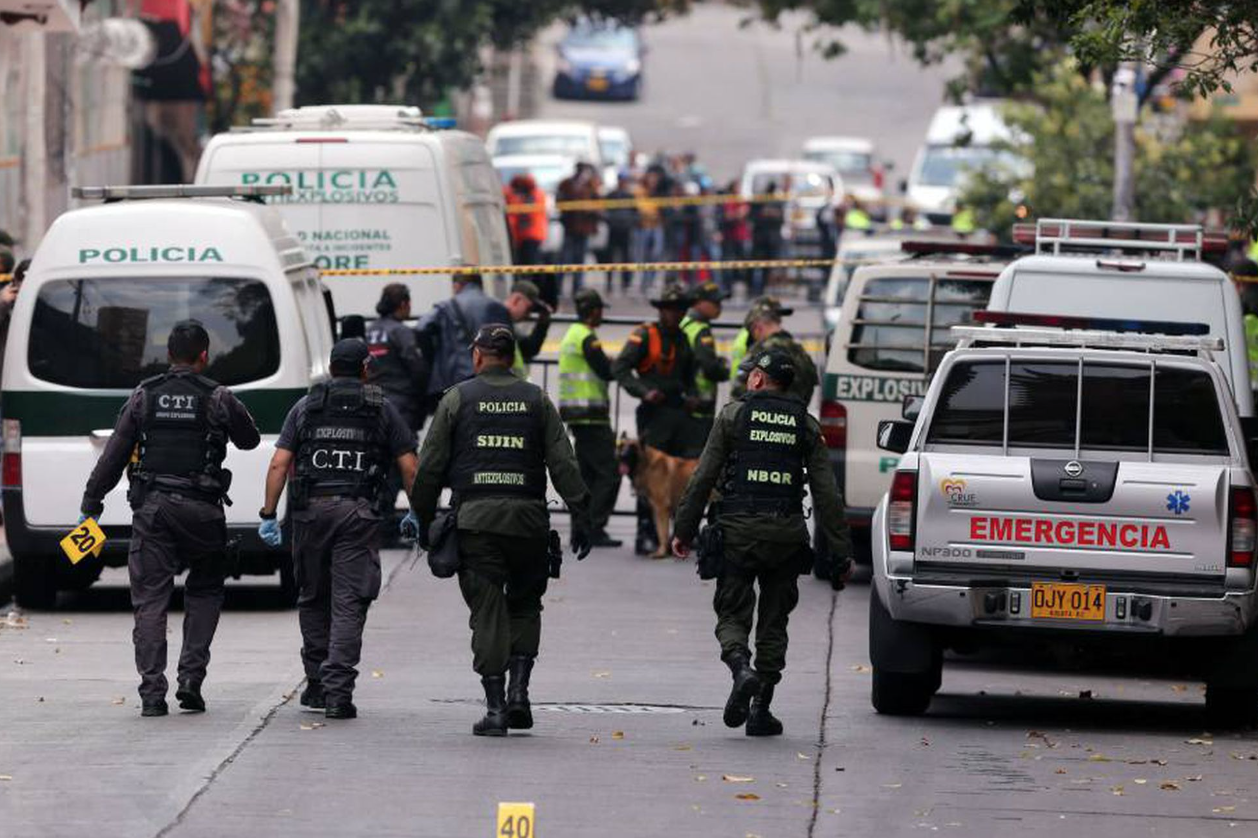President Gustavo Petro, during his campaign and when he becomes President on August 7, 2022, has set as a key objective for the employment of human security (among many of his initiatives). That is, security is not only a matter of coercion (a soldier and a rifle, or a policeman and a gun).
Indeed, security cannot be reduced only to coercion. Taking into account the multidimensional aspect of security, it must be understood that access to basic goods and services such as water, electricity, sanitation, health, education, and employment are also part of security. However, an essential factor of human and multidimensional security has been left aside, that is, controlling the territory and preventing the population from being encircled by criminals, as is the case in Colombia. Currently, there are more than 30 criminal groups on the national territory, which makes it difficult for the government to fulfill this campaign promise.
The strategic breakdown of the Military Forces
After the governments of Andrés Pastrana, Álvaro Uribe Vélez, and Juan Manuel Santos, but especially during the transition of the first two, a strategic blow had been dealt to the large criminal groups in Colombia. The Revolutionary Armed Forces of Colombia (FARC) fled to the border, but never recovered as in their most glorious moments after these periods of government (1998-2010).
Their submission to justice was among the highest, and they also suffered the highest number of casualties due to the harshness of the conflict. They never again took over a rural town or dynamited energy towers, and the level of extortion and political kidnappings reached an inconceivable historic low. The security forces had high-quality operational capabilities, however, the serious events of the false positives reduced their legitimacy, which was recorded in the report of the Truth Commission.
What is currently happening in terms of human security with regard to the Historic Pact project led by President Petro? Well, to summarize, total peace is an ambiguous project that proposes negotiating at the same time with all armed groups. This is logistically impossible and, politically, a serious strategic error for the Colombian State.
Secondly, the lack of leadership in the Ministry of Defense has shown that there is no line of action regarding security in the country. The only one known so far is the dialogue with all groups and the suspension of some offensive actions in the national territory.
Thirdly, the increase in coca leaf crops and the proposal to legalize ten hectares per peasant family so that they depend on it until a complete substitution is made, is not only financially unsustainable, but it is also difficult to avoid that later some group forces them to continue growing coca leaf. According to the vision of intellectual Eduardo Pizarro Leongómez, will reach the record figure of almost 300,000 hectares of coca leaf cultivation in 2023. This amount is enough for the armed groups to remain fully active.
Finally, the strategic breakdown of Colombian state security is characterized by an apparent lack of clear direction in the military forces in terms of the National Strategic Plan. The National Police, for its part, is unable to contain the criminal activity that surpasses it. This requires greater precision in its arrest and prosecution procedures.
The negotiation with the National Liberation Army (ELN) and its treatment as a political-military organization not only grants it a political status but also allows it to demand the revision of the country’s economic model. In fact, this is a difficult demand, especially when this group does not pretend to be a political movement, and only knows an economic model that is not precisely economic growth, but is based on the model of the old communism.
Justice, at the mercy of what these groups want to demand, will not be able to impose the corresponding sanctions. In this way, a judge of the republic will think twice about whether to impose a measure or a sentence on a person, even if it has been demonstrated, effectively, that he or she committed crimes that merit the penal code sanction, if these people were to declare themselves peace managers.
To conclude, it is clear that Colombia will continue to proceed through de facto demands and not through institutional instances in which, often, disrespect for the law and institutions will prevail. We all want peace, it is a desire of all Colombians. But with this strategic breakdown of the military forces and human security, it will be difficult to achieve it. We trust that the spiral of violence will not increase and that the president will be able to consolidate a more effective human security project for a country where armed violence has not ceased.
*Translated from Spanish by Janaína Ruviaro da Silva











